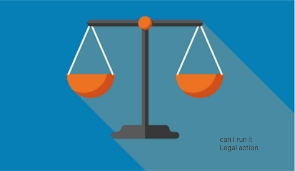 |
| Legal action |
I am going to talk about what legal action is and the few different types of legal action. I'll also be presenting some examples of legal action.
Legal action as is widely known means “a legal proceeding either instituted by or on behalf of a person or an organization to recover damages from another person or organization; to assert an objection or defense against the adverse action; to exercise his rights under an agreement of law between the parties to such action, or to oppose an ex-parte application by others seeking redress for a breach of one or more of a law or custom.” Legal action does not simply mean the actions taken during a legal proceeding, but rather it means any measure or action that is taken to bring a proceeding to an end.
That action is the legal action that arises out of the lawful authority of your legal team or your client. If you're dealing with legal action, it is important to seek representation by a qualified legal counsel or counsel who is experienced with matters like summary judgment, case review, and the like. By having a team that knows what they're doing, you can present your case more confidently and efficiently. A legal team can also give you guidance and advice so that you're the most successful that you can be to produce the most success by maximizing your potential.
On the other hand, a legal team can also have serious problems when dealing with legal issues. About legal action, a legal team will have to deal with new and complex legal issues that is why they often rely on an experienced and knowledgeable legal team. Legal action is not only a business organization or individual's decision but rather a business organization or individual's legal team. Your legal team may have tried to have another action filed in the past. Due to the complexity of the legal issues, they are dealing with, sometimes these legal teams will make a change of course. If the legal team does change course, they may take legal action to replace the original action with the new and more complex legal issues which require specific complex legal analysis.
Legal actions are rarely taken by the client by themselves, instead, they are taken in a course. If there are any legal actions filed and taken on behalf of your legal team by a former client, the former client could sue your team for the costs they incurred during their representation. In this case, the first appeal should be dealt with by the third party who is on the case review team. This third party can file an appeal with the higher court and reverse the decision that was made on behalf of the third party and the general line of law.
How Legal Actions are handled by Judges? Just like any other formal proceedings, cases related to legal actions are handled by a judge. On the other hand, the law and court decisions are what should be handled by the legal team. Judges deal with complex legal issues to come up with sensible and properly formulated sentences that will summarize the situation and will give advice on how to best proceed as a case under consideration.
On that note, a judge should be careful when making decisions in court for the parties. In terms of legal actions, a judge needs to examine every case and assess the facts involved. Based on this assessment, the judge will judge every case as a result of his/her analysis of the facts involved.
A judge can also delay a case if their court is working at its full speed, which is normal during the day when there is a caseload of action and this will mean that the court will not hear any cases on Tuesday, Wednesday, or any other Tuesdays and Wednesdays. Judges can then conduct memos and have no official hearing on Thursdays or Fridays. Judges also order discovery and possibly scheduling of a further hearing, but these details will be discussed later.
Judging is a confidential process that should not be made public. Meaning, judges do not discuss or comment on the case outcome or on any other matters that may be considered confidential.
Judging should not be seen as a method to take legal action, but rather a method of neutralizing it. Judges can halt the process by deciding to change the design of the case and the evidence presented to the court at trial. Judging can also decide to order witnesses to appear and present new evidence to enhance the case, all of which are normal functions of a judge. The final decision will be determined by the judge, not the trial jury or the party to the case.
In summary, the legal process for a civil case is many different, but the legal process for a criminal case is on different terms. You should consider hiring an experienced legal team as they can advise you on how to go about bringing to justice the person or organization you are interested in recovering damages from.






